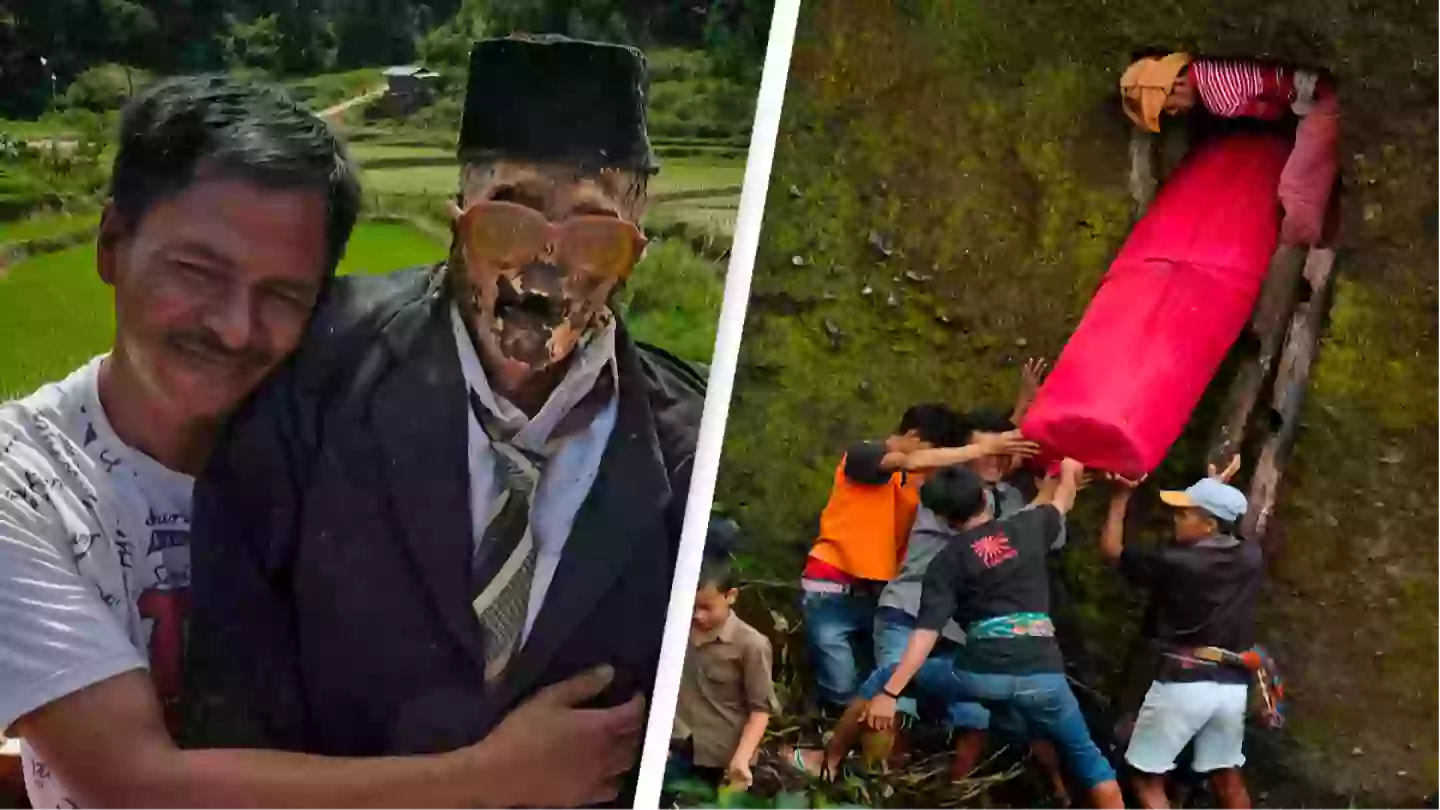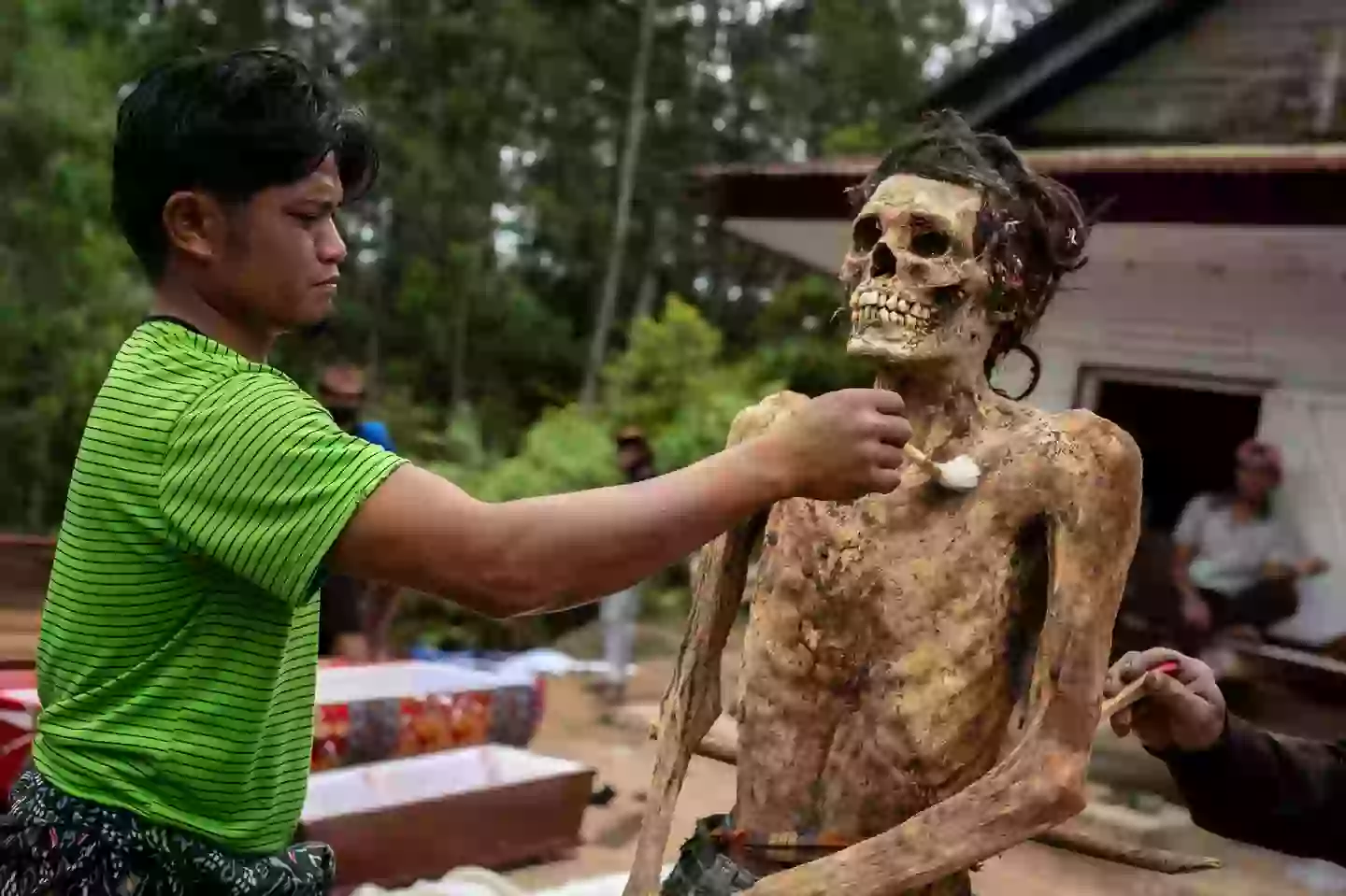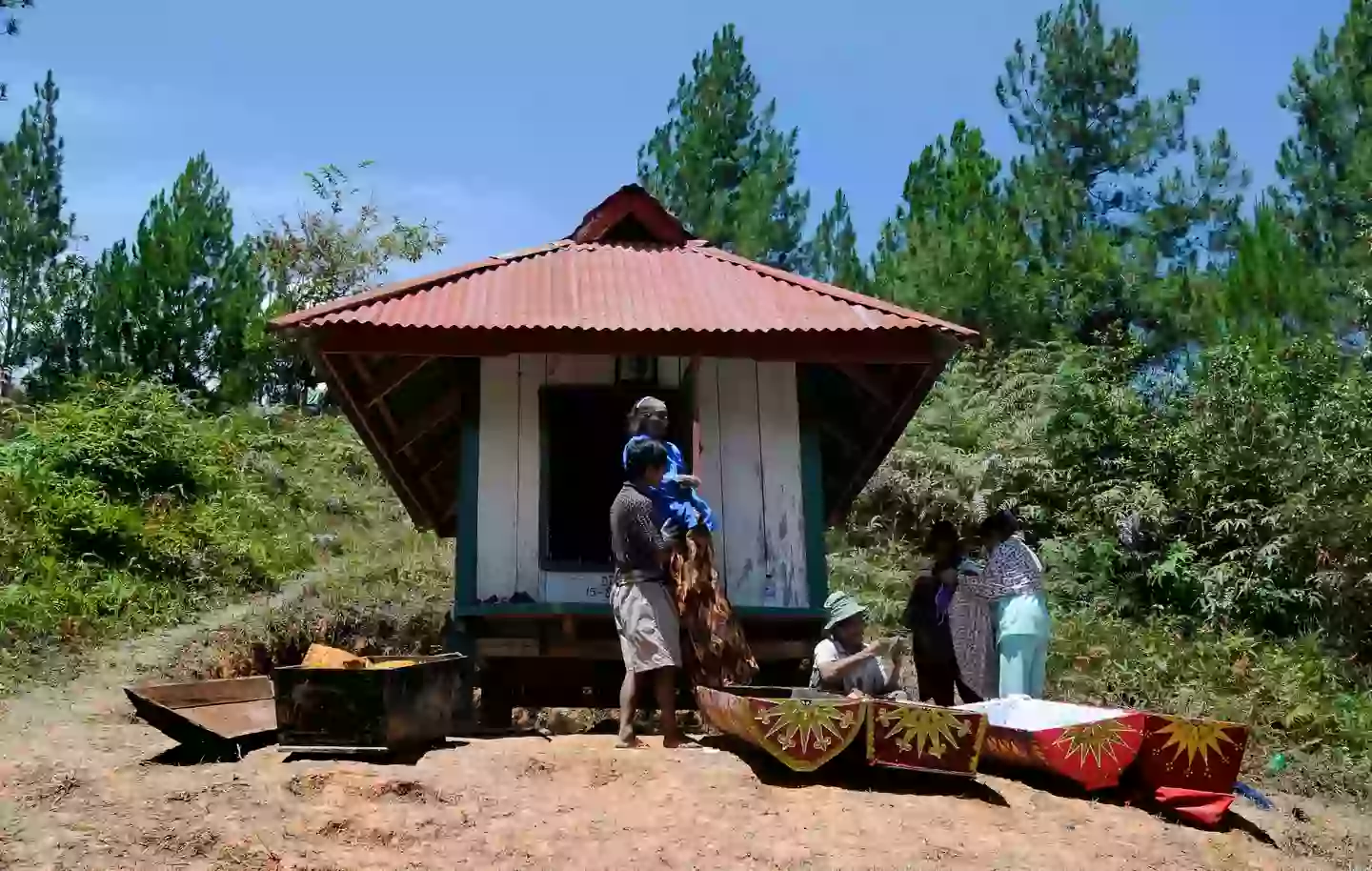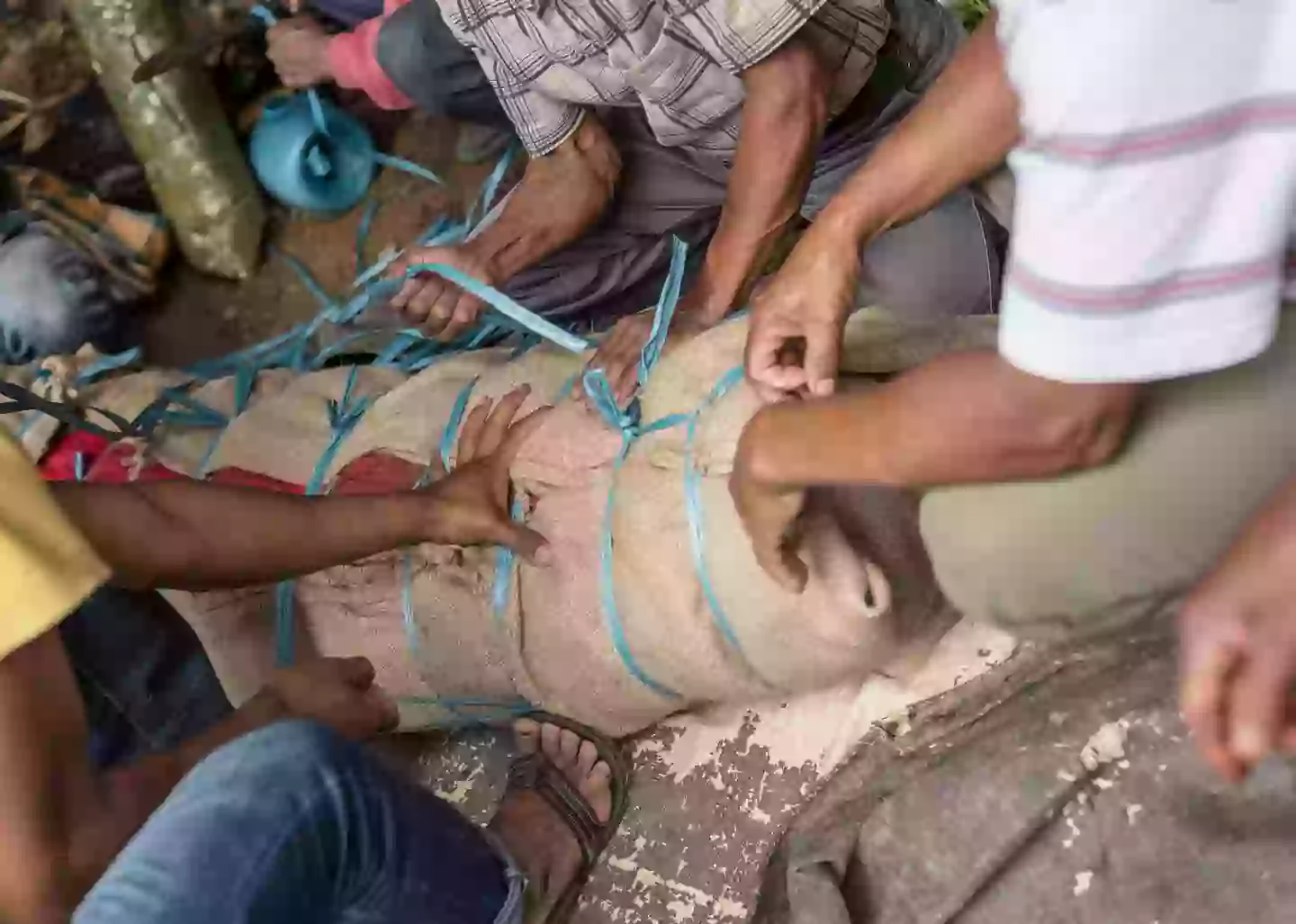
Warning, this article contains images of human remains some may find upsetting
A ceremony in Indonesia sees families dress up their dead relatives and even put cigarettes in their mouths.
In Southern Sulawesi, one of the country's largest islands, the Torajan people take part in the ancient Ma’nene ceremony.
The ceremony involves exhuming dead relatives' bodies, cleaning them, and dressing them in new clothes.
Advert

According to belief, the ceremony is a way of honouring dead relatives and ensuring a bountiful harvest the following year.
Like many ancient ceremonies, Ma’nene has its roots in folklore; according to some theories, the ceremony started with a hunter called Pong Rumasek, who found and took care of a dead body he came across in the jungle.
Due to the hunter's kindness, good luck was bestowed upon him, and he received plentiful harvests thereafter.
Advert
However, it is hard to pin the origin of the ceremony down, with a Torajan photographer, Endy Allorante, telling The New York Times: "Nobody knows when, where and how exactly the tradition was first invented."

While the ceremony might seem strange to outsiders, the local community has an incredibly refreshing take on death and sees dressing up the corpses of their loved ones as a cause for celebration.
The ceremony typically lasts three days, and tourists in the region can see corpses dressed up in all their finery, paraded through the streets.
Advert
The dead are walked down a path in the village, which is connected to a spiritual entity with supernatural power, known as a 'Hyang'. The path is said to allow the dead to reach the afterlife and keep the community blessed.

While the ceremony may seem chilling to outsiders, it's a positive experience for the locals – so much so that crying and mourning are strictly prohibited.
After the ceremony, coffins are repaired after the walk with the corpses, and they're redressed in nice clothes, before being buried again until the next Ma'nene.
Advert
The ceremony is carried out every one, two or three years, depending on the family's agreement.
Photographer Claudio Sieber, who spent time photographing the ceremony in 2017, told Huck Magazine he 'became very comfortable with the situation after maybe two or three days'.
"I changed my perspective about it because for them it’s life that goes beyond death. It’s not a sad moment," he said.
If you have experienced a bereavement and would like to speak with someone in confidence contact Cruse Bereavement Care via their national helpline on 0808 808 1677
Topics: Life, World News, Weird